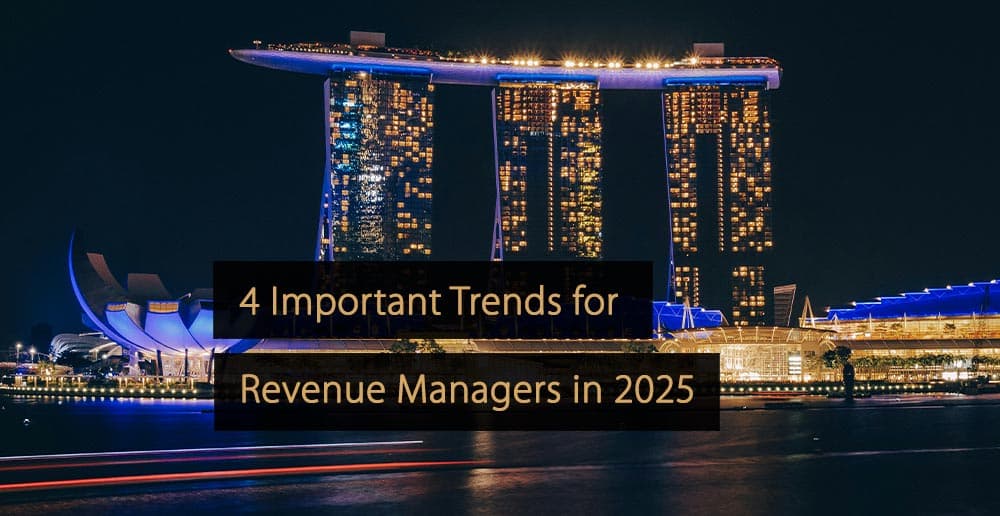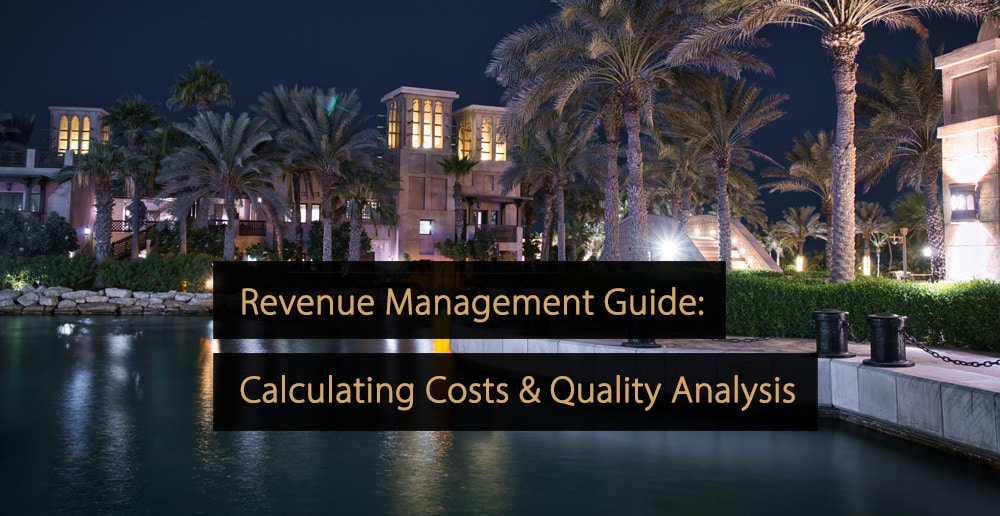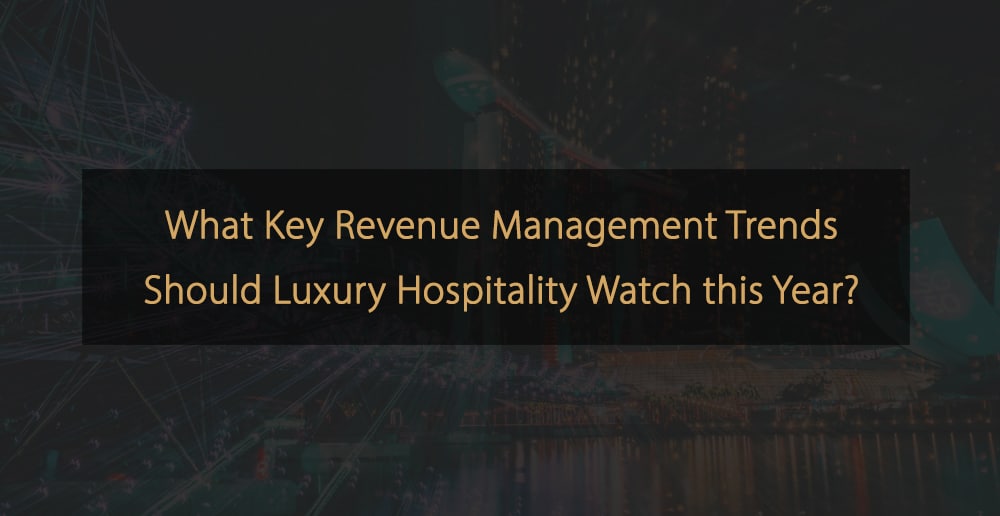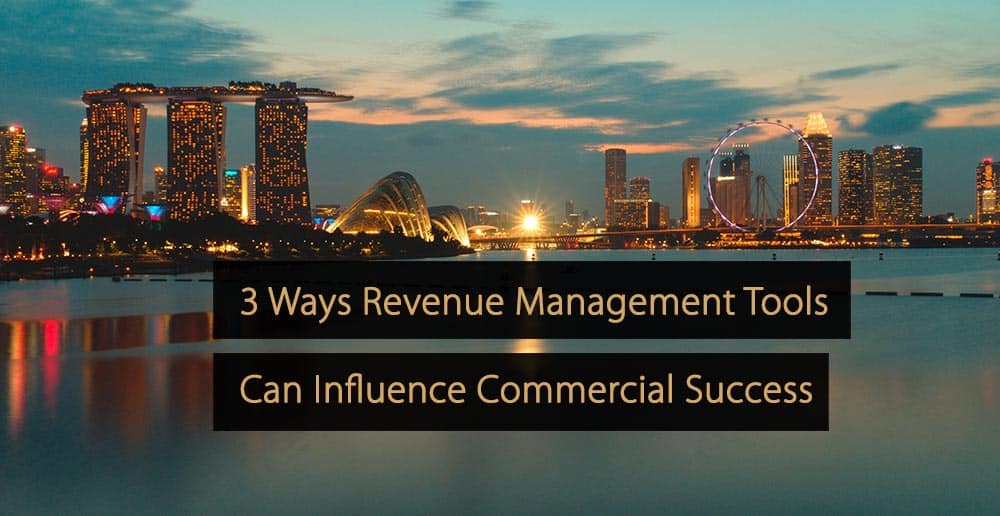Hospitality is always changing. However, the current pace of change feels faster than ever, which throws up both challenges and opportunities for those within the industry. For revenue managers, the real question isn’t just about managing change – it’s about how to harness that change to drive profitability and long-term growth.
4 Trends for Revenue Managers in 2025
Revenue optimization in hospitality has always been a balancing act, but the factors influencing pricing strategies, distribution channels, and guest spending behavior are evolving rapidly. Below, we explore four big trends defining the industry’s next chapter, each with major implications for revenue leaders.
1. AI Will Unlock New Revenue Streams and Enhance Profitability
Artificial intelligence (AI) is transforming guest interactions, but for revenue managers, its real power lies in optimizing demand forecasting, dynamic pricing, and upsell strategies. AI-driven tools can analyze massive data sets in real-time, allowing revenue teams to move beyond historical trends and make more accurate, profit-driven decisions.
Hotels leveraging AI-powered revenue management systems (RMS) can dynamically adjust pricing based on shifting demand patterns, competitor pricing and real-time guest behaviors. AI can also personalize offers at scale, increasing conversion rates for upsells like room upgrades, dining packages and late check-outs. At Mews, can better tailor experiences, meaning more successful upsells and incremental revenue growth.
AI chatbots and voice assistants are also driving direct bookings by providing real-time responses to guest inquiries, reducing reliance on OTAs (more on that later). As the technology evolves, AI-driven personalization will ensure that hotels capture more high-value guests and increase revenue per available guest (RevPAG).
2. Productivity Gains Will Reduce Operational Costs and Improve Margins
Staffing challenges have long plagued the hospitality industry. But instead of viewing labor shortages as a revenue constraint, forward-thinking hotels are leveraging automation to increase efficiency and profitability.
Cloud-based PMSs and automation tools are reducing labor costs while improving service quality. Features like mobile check-in, automated room assignment, and digital keys allow hotels to operate with leaner front desk teams, reallocating resources to revenue-generating roles such as upselling and personalized guest service.
AI-powered housekeeping optimization is also improving operational efficiency. Dynamic room cleaning schedules, based on real-time occupancy and guest preferences, reduce unnecessary labor costs and free up resources for higher-margin activities like spa services or food and beverage sales.
By integrating technology to streamline workflows, hotels can not only offset rising labor costs but also create better experiences that drive repeat business and higher guest spending.
3. The Shift from OTAs to Direct Bookings Will Improve Net Revenue
OTAs like Booking.com and Expedia have long dominated the distribution landscape, taking significant commissions on each booking. But with AI-powered search tools changing how travelers discover hotels, revenue managers have an opportunity to shift demand back to direct channels, boosting net revenue per booking.
AI chatbots, including ChatGPT and Google’s AI-driven search tools, are reshaping the booking journey. Instead of defaulting to OTAs, travelers are increasingly using AI assistants to find the best hotel options based on their preferences. Hotels that optimize their digital presence – through SEO, AI-driven content strategies, and improved website booking experiences – will capture a larger share of direct bookings.
Loyalty programs are another critical component in reclaiming direct bookings. Traditional points-based systems are evolving into partnerships with credit card companies and subscription models, offering incentives that encourage repeat business and reduce acquisition costs.
For revenue managers, the takeaway is clear: refining direct booking strategies will not only lower distribution costs but also provide more opportunities for upselling, ancillary revenue and guest retention.
4. Hybrid and Extended Stay Models Will Increase RevPAG
The rise of remote work, digital nomadism, and bleisure travel has shifted demand toward longer stays and hybrid accommodation models. Hotels that diversify their offerings to accommodate extended stays and multi-purpose spaces will unlock new revenue streams and increase the length of stay (LOS), one of the most powerful drivers of profitability.
Major hotel brands are already investing in this area. Hilton’s acquisition of Graduate Hotels and Hyatt’s expansion into extended-stay markets highlight the growing importance of adaptable accommodation models. From offering rooms with kitchenettes to incorporating co-working spaces, hotels that cater to long-term guests can drive higher total RevPAG.
The key challenge for revenue managers is optimizing pricing for these hybrid models. Unlike traditional transient stays, extended stay pricing requires a blend of short-term dynamic pricing and long-term lease-style rate structures. A robust RMS with AI-driven forecasting can help hotels strike the right balance, ensuring maximum revenue capture across different stay durations.
The hospitality industry is undergoing a transformation, but revenue managers are in a prime position to capitalize on these changes. By embracing AI-driven pricing, optimizing labor costs through automation, reclaiming direct bookings, and diversifying accommodation offerings, hotels can unlock new revenue streams and maximize profitability.
Free Report: The Essential 2025 Hospitality Outlook!
Download the 2025 Hospitality Outlook to access exclusive predictions from Skift, BWH Hotels, Stripe, Wyndham Hotels & Resorts experts, and more. Position your business for success – your next big opportunity starts here!
Click here to download the “The 2025 Essential Hospitality Outlook Report!“.
More Tips to Grow Your Business
Revfine.com is the leading knowledge platform for the hospitality and travel industry. Professionals use our insights, strategies, and actionable tips to get inspired, optimize revenue, innovate processes, and improve customer experience.Explore expert advice on management, marketing, revenue management, operations, software, and technology in our dedicated Hotel, Hospitality, and Travel & Tourism categories.








Leave A Comment